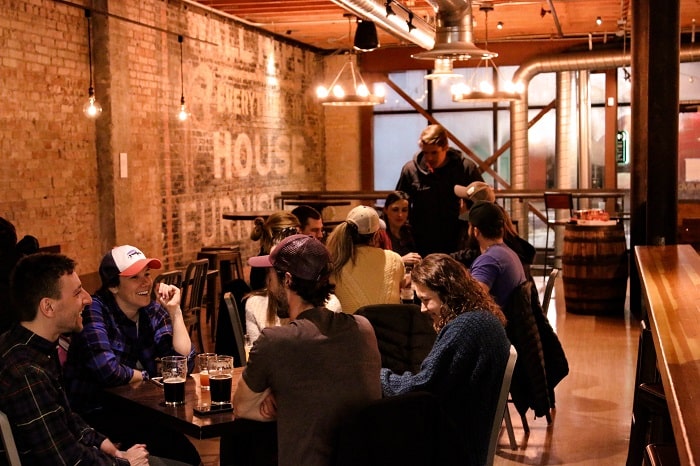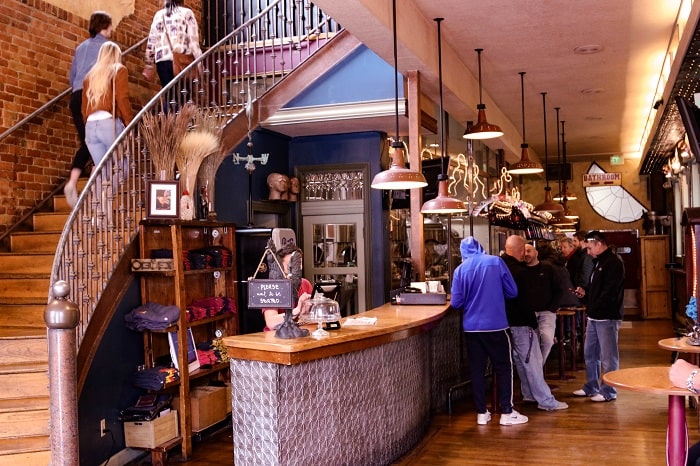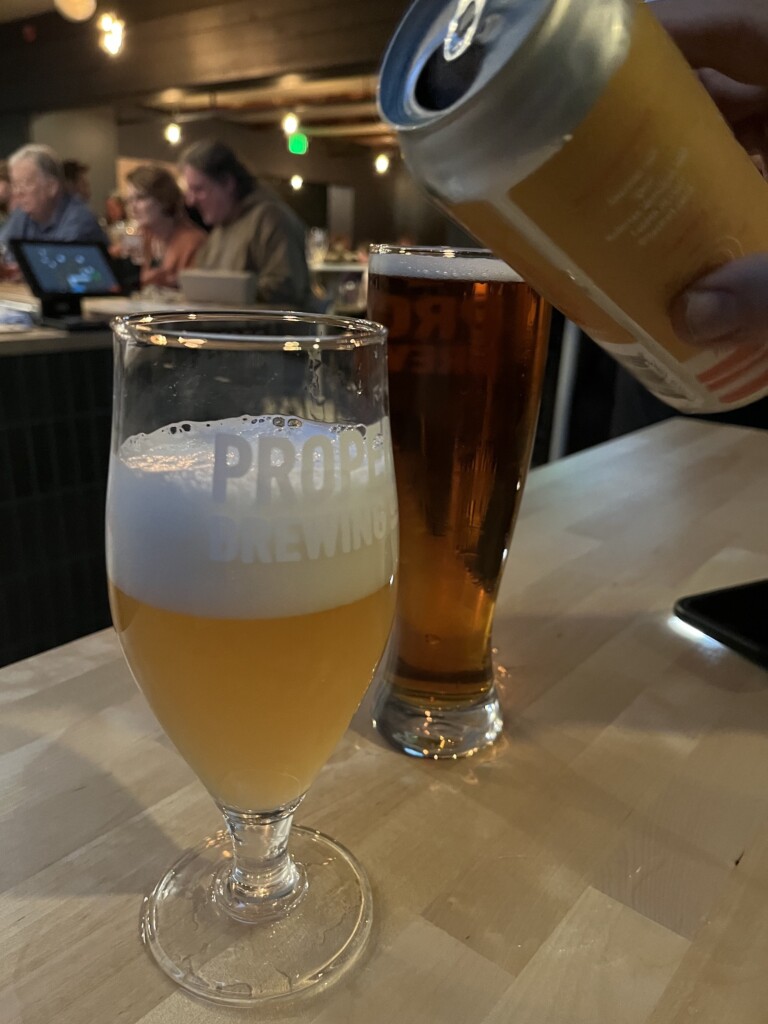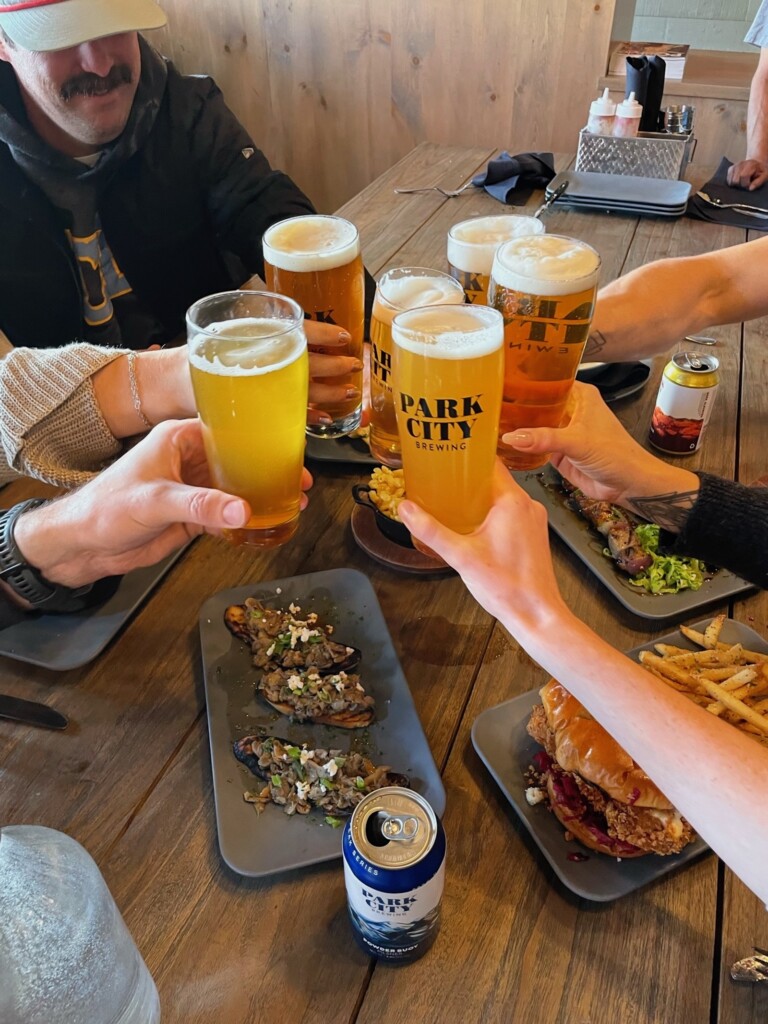
The Real Cause of Utah’s Great Economy (Utah Craft Beer?)
Utah Governor Gary Herbert is good at bragging about Utah’s economy and his record for making Utah into an economic powerhouse. He takes credit for Silicon Slopes and attracting huge amounts of tech money to Utah (with generous tax incentives). What Herbert doesn’t respect, nor likely understand, is that authentic community and jobs — where people are happy — doesn’t originate from the top down, but rather, from the bottom up.
Tax incentives attract giant corporations to put headquarters in Utah, but most jobs are created by small businesses, and small businesses provide “a sense of place” and community. Examining the burgeoning craft beer market for our ninth-straight year, we find that while silicone slopes might be booming, people who make beer are simply far happier than people who sit in front of computer screens all day. “But,” you might say, “what about Adobe, Amazon, eBay, Vivint! These are the businesses making Utah great! Look at all the jobs!”
A job provides the state with tax revenue, a person with income, and puts food on the table. But, as Jesus said, “Man does not live by bread alone.” Recent studies have found that community is a far greater determinant of overall happiness and well-being than wealth, which is why the wealthy want to live near brewpubs, local restaurants, and authentic communities.
Urban Gentrification
Urban gentrification is the term used to describe a cool neighborhood taken over by rich new inhabitants. The wealthy want to live in places with a nice art scene, local businesses, and culture. They are willing to pay higher prices for real estate to be where “authentic culture” is located. Developers and most city councils are driven by profit motives and tax revenue and are more than happy to accommodate. But the original local businesses either must move when their buildings are slated for demolition, or close their doors. The result is that artists and culture leave a place lacking and wanting for the once-authentic local culture it had before. Such is the way of capitalism. But artists and entrepreneurs can always find cheap rent areas and make former bad areas cool.
This urban gentrification has been witnessed in Sugar House, Park City, downtown Salt Lake City, and now, to a degree, in craft beer. The capitalists and elite have taken over these areas and most of the new real estate. Apartments and condos have been bought by new Utah residents who are happy to be living so close to such amazing mountains. Today, craft beer is experiencing its own form of urban gentrification.
Utah Craft Beer
The original Utah craft beer pioneers (the owners of Uinta, Wasatch and Squatters) have sold their breweries to venture capital groups. While these brands are still a big part of Utah’s beer culture, the leadership and ownership have shifted to building these brands on a national scale and to reduce the inefficiencies built into producing craft beer.
Uinta beer still tastes great, and their pub and facilities are amazing, but rather than focus primarily on remaining Utah’s best big name for craft beer, they have higher, broader and even national aspirations. This is understandable. Such is the way of capitalism. Venture capital groups are seeking a big return on their investment, just as the developer buying out the cool buildings in the cool neighborhood wants to see his. I don’t blame Greg Schirf, Will Hamil and others for selling out. Who wouldn’t want a very nice payday after twenty years of hard work building a solid, recognizable brand?

The New Faces of Utah Craft Beer
Still, it’s important to realize where the heart of Utah craft beer culture remains. Salt Fire Brewery, Toasted Barrel Brewery, Hopkins, Cerveza Zolupez, and Templeton Family are all new breweries started by homebrewers or long-time brewers with a great passion for crafting the very finest in small-batch, local beer.
Brewing craft beer is a business based on the fact that man does not live by bread (or beer) alone. If all we wanted was decent, cheap beer, the craft beer movement would have never resulted in acquiring a 20% national market share from the mega-breweries. Millions of consumers have willingly chosen to pay more money for a locally-made product inefficiently produced.
This trend, and the local movement in general has pure supply-side economists scratching their heads because it defies the theory. Supply and low prices should always drive demand.
The higher prices these small-batch breweries require should cause these new breweries to fail, but instead, they flourish and now the wealthy capitalists want in. Some might cry foul or believe this is somehow an inherent flaw in capitalism. It’s not, because we as consumers always have the freedom to choose. Since consumer consciousness and authentic community have created the craft beer movement, not just in Utah, but nationwide, so consumer consciousness should continue to drive its grass-roots growth.
In summary, be sure to drink and support the new brands brewing amazing beer produced in a highly inefficient manner, making once-blighted areas and neighborhoods cool.
Drink up and enjoy each place before wealthy capitalists buy them out.
FOR MORE UTAH BEER STORIES GO HERE





